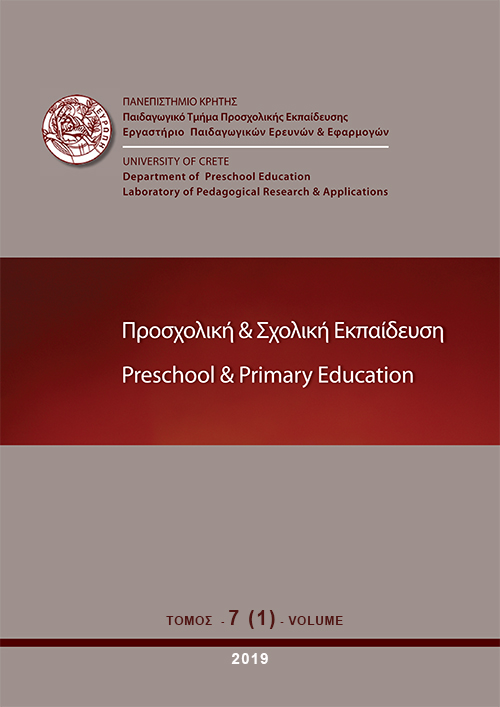‘Do women know how to drive?’ A research on how theatre pedagogy contributes to dealing with gender stereotypes

Abstract
This research aims at investigating the effects of a drama/theater-in-education program on dealing with gender stereotypes; it also aims at creating or improving a culture of cooperation and communication among 6th grade pupils of a Greek primary school. On the premise that drama/theater promotes play, free and creative expression, we attempted to bring out the pupils’ perceptions, subconscious thoughts, prejudices, emotions and fears regarding gender, through both qualitative and quantitative tools. The sociometric test analysis, the subject analysis of the data gathered by the student group interviews, the critical friend’s comments and the researchers’ reflective journals indicate a shift in the pupils’ stereotypical perceptions on gender as well as a broadening of the social networks between boys and girls. The educational drama/theater practices of our program provided the students with a safe, free and creative environment that enabled them to talk about, negotiate and express with all senses their personal representations, values, views and gender stereotypes.
Article Details
- How to Cite
-
Lenakakis, A., Kousi, D., & Panges, I. (2019). ‘Do women know how to drive?’ A research on how theatre pedagogy contributes to dealing with gender stereotypes. Preschool and Primary Education, 7(1), 53–80. https://doi.org/10.12681/ppej.19347
- Issue
- Vol. 7 No. 1 (2019)
- Section
- Articles

This work is licensed under a Creative Commons Attribution-NonCommercial-ShareAlike 4.0 International License.
Authors who publish with this journal agree to the following terms:
- Authors retain copyright and grant the journal right of first publication with the work simultaneously licensed under a Creative Commons Attribution Non-Commercial License that allows others to share the work with an acknowledgement of the work's authorship and initial publication in this journal.
- Authors are able to enter into separate, additional contractual arrangements for the non-exclusive distribution of the journal's published version of the work (e.g. post it to an institutional repository or publish it in a book), with an acknowledgement of its initial publication in this journal.
- Authors are permitted and encouraged to post their work online (preferably in institutional repositories or on their website) prior to and during the submission process, as it can lead to productive exchanges, as well as earlier and greater citation of published work (See The Effect of Open Access).


